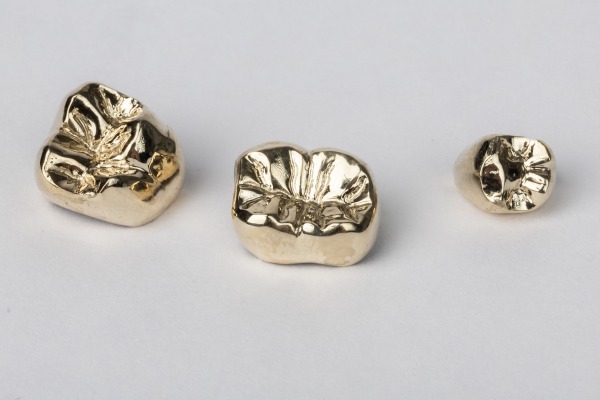Full Cast Crown
Full cast crowns are a type of dental restoration that involves creating a crown from a solid piece of metal, typically gold or a high noble alloy. Here are some key points about full cast crowns
Full cast crowns are made from high noble alloys (over 60% gold, platinum, and/or palladium) or noble alloys (over 25% gold, platinum, and/or palladium). Base metal alloys like chrome-cobalt can also be used.
These crowns are known for their strength and durability, making them ideal for posterior teeth that endure significant chewing forces.
Proper tooth preparation is crucial for full cast crowns. This includes sufficient occlusal reduction (typically 1-1.5 mm) and axial reduction with a 6-degree taper to ensure a proper fit.
Full cast crowns are often used for posterior single units, crowns, bridges, inlays, and onlays. They are particularly useful in cases with tight occlusal space.
These crowns can be cemented using various conventional cementation systems, including glass ionomer, resin-modified glass ionomer, and auto-cure resins.
Overview
For over 100 years full cast crowns are the preferred clinical choice for long-term durability, especially for posterior restorations. These restorations are digitally designed and milled in wax prior to casting which offer consistent results. Gold is the most non-toxic and biocompatible materials on the market and a restorative material clinicians can trust.
- Cementation: Conventional cementation
- Warranty: Our warranty covers any defect in materials or workmanship for a period of five years from the date of completion.
- Turnaround time: 10 days in lab


Preparation Guide
- Minimum of 0.5 mm occlusal space reduction needed
- Chamfer or shoulder margins are preferred
- Axial walls tapered 3˚ to 6˚degrees

Current Laboratory Metrics
Do you need more info regarding Full Cast Crown
Leading the way with advanced dental technology for optimal treatment

